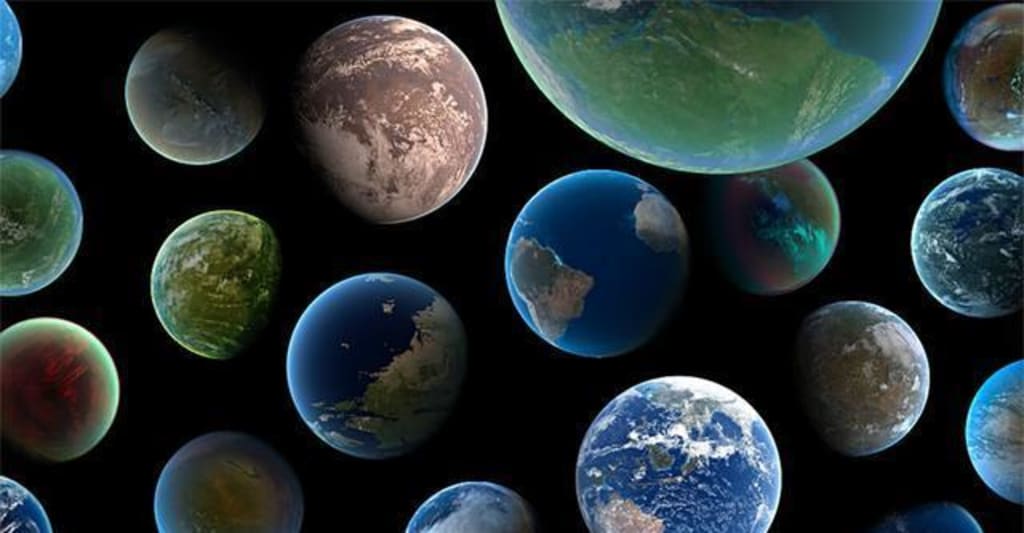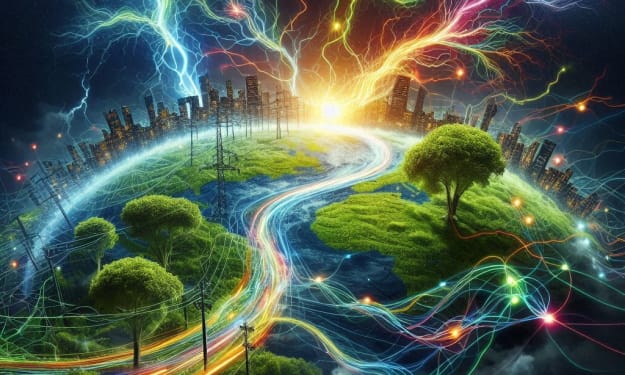Earth is consuming 173% of the world's total 'biocapacity', scientists warn
The earth is consuming 173% of the world's total "biocapacity". It will eventually lead to ecological poverty for most people

Humans around the world are consuming far more natural resources than our planet can sustain, a new study shows, ultimately driving most people into ecological poverty.
When researchers tried to tally the natural resource deficit in 2017, they found that our global population exceeded 7.5 billion, and that year we consumed 173 percent of the world's total biological capacity.
This is clearly a severe overload, part of a trend that has gotten worse in recent decades. In 1980, humans used only 119% of the global biocapacity.
Much of the surge in demand since then has been driven by richer countries, which are increasingly demanding higher living standards, even if they have to buy resources elsewhere.
Today, nearly three-quarters of the world's population live in countries with below-average incomes and scarce natural resources, meaning they simply cannot compete.
Clearly, the path we are on today cannot go on forever. If the world really wants to eradicate poverty, then experts say we cannot continue to ignore the limiting factor of the planet's resources.
Based on per capita gross domestic product (GDP) and local ecological deficits, researchers grouped countries around the world into four categories, illustrating unsustainable changes in human demand for resources.
The researchers argue that if we do not seek to rapidly improve resource security through conservation and restoration, cutting fossil fuels, sustainable development and shifting consumption patterns, our natural capital will not be restored and our hopes for a more equitable future will be completely destroyed.
Researchers found that in 1980, 57 percent of the world's population lived in a "double curse" situation: below-average income and a shortage of biological resources. In 2017, that number jumped to 72%.
On the other hand, resource-scarce high-income countries are home to only 14% of the world's population, yet this minority requires a staggering 52% of the planet's biological capacity.
Switzerland and Singapore are two prominent countries that fall into the latter category, which means they are protected from resource insecurity because they have the funds to buy what they need from elsewhere.
Scientists believe that to live in a truly sustainable way, we should not use more than half of the planet's resource capacity, but if everyone in the world lived like people in high-income, low-resource countries like Switzerland, we would need approximately 3.67 Earths to meet global demand.
The researchers concluded: "If the development patterns of these cities or regions are not replicable, there is only one way for these entities to avoid their own demise: they must be convinced that they can always outperform everyone else financially on the planet to ensure that they Metabolism of resources. But requiring such a strategy to succeed is precarious for a region at any income level.”
This is especially dangerous for low-income areas, as they cannot compete for resources on the same level. Without the aid of rich countries, these countries really can't do much.
In fact, the researchers argue, low-income countries are currently facing a dilemma. Continuing with the status quo will undoubtedly worsen their current resource crisis, but rapidly changing human resource consumption will also cost a lot of money that many simply cannot afford.
What's more, because rich countries consume far more resources than are necessary to survive, they have more leeway in the face of future disasters. For example, in a downturn, the loss of resources is not as catastrophic for Spain as it is for Niger or Kenya. In these countries, the rapid loss of resources could erode the food and energy security of many more people, putting their lives at risk.
The findings of this study reinforce the idea that bioresource security has a far greater impact on sustainable development success than most economic development theory and practice would suggest, and show how much it affects different populations unbalanced.
Clearly, we are spending more than humans or the planet can handle.
About the Creator
sayre laylah
Tired of monotonous climbing moves, but every step is close to the top
Enjoyed the story? Support the Creator.
Subscribe for free to receive all their stories in your feed. You could also pledge your support or give them a one-off tip, letting them know you appreciate their work.






Comments
There are no comments for this story
Be the first to respond and start the conversation.